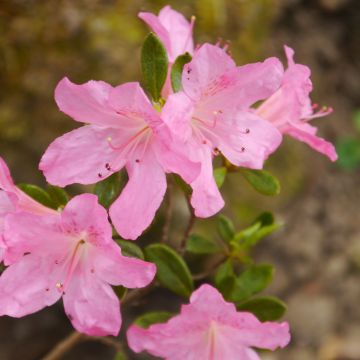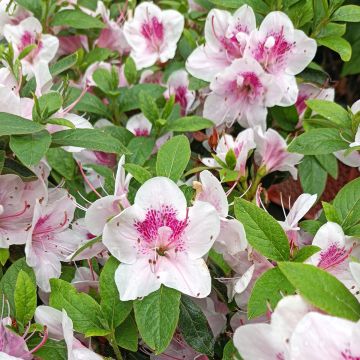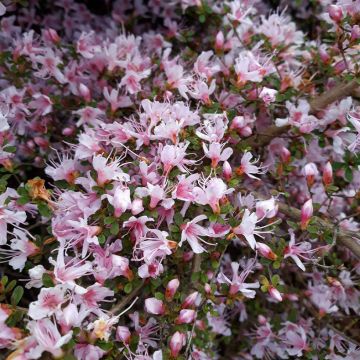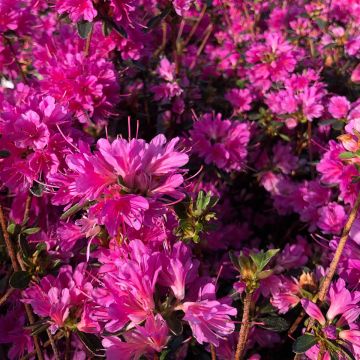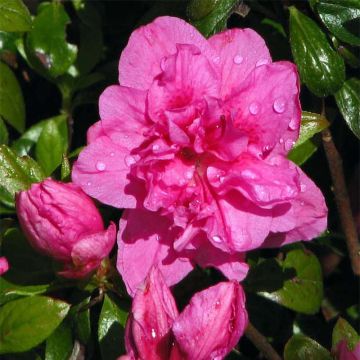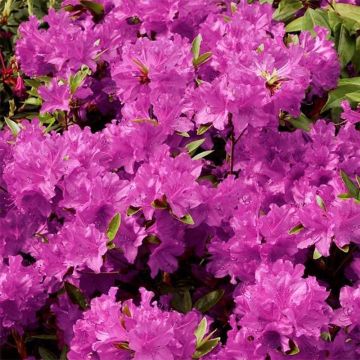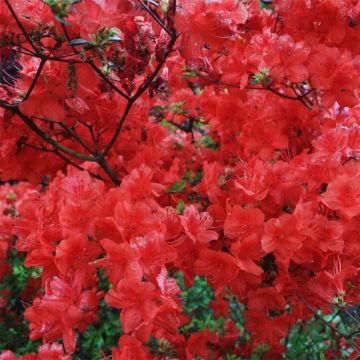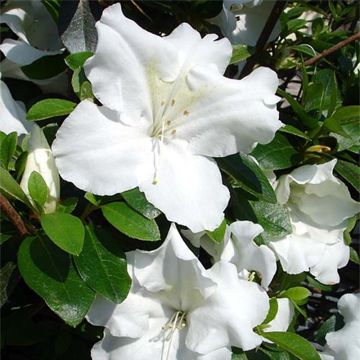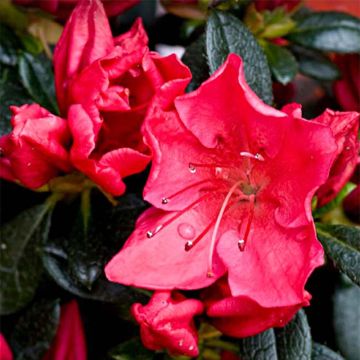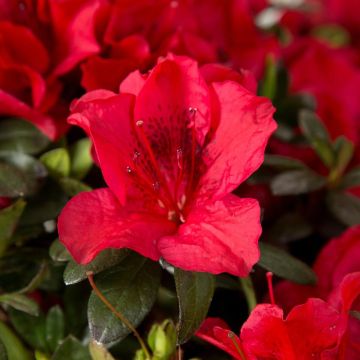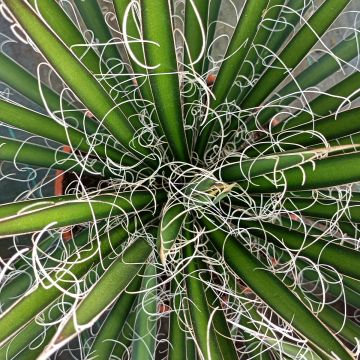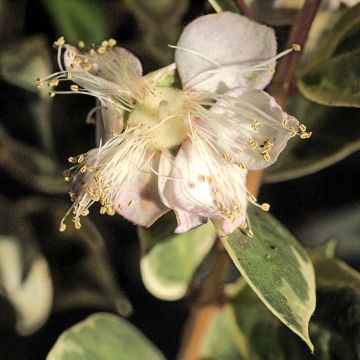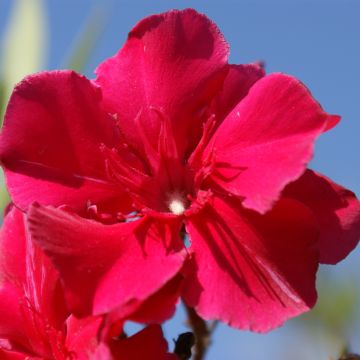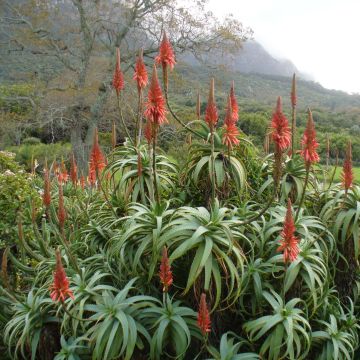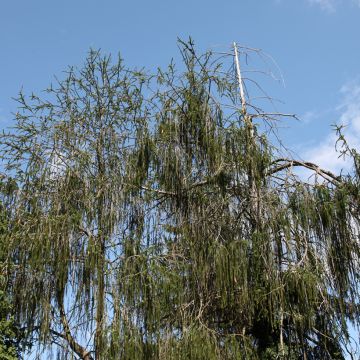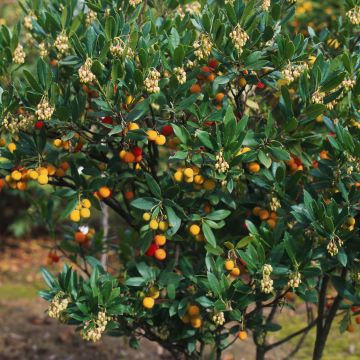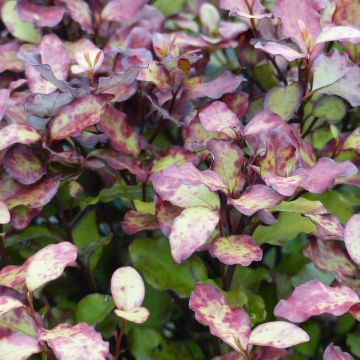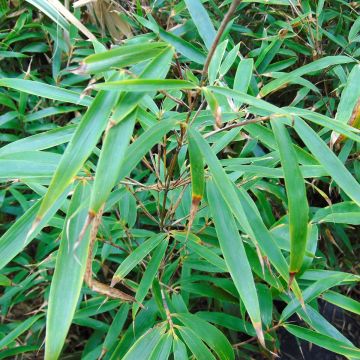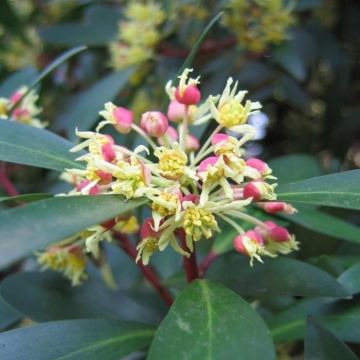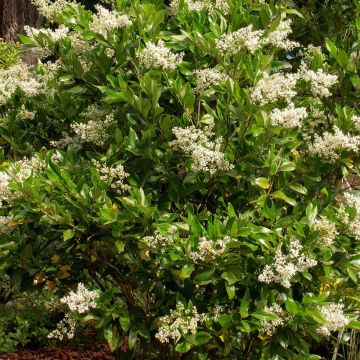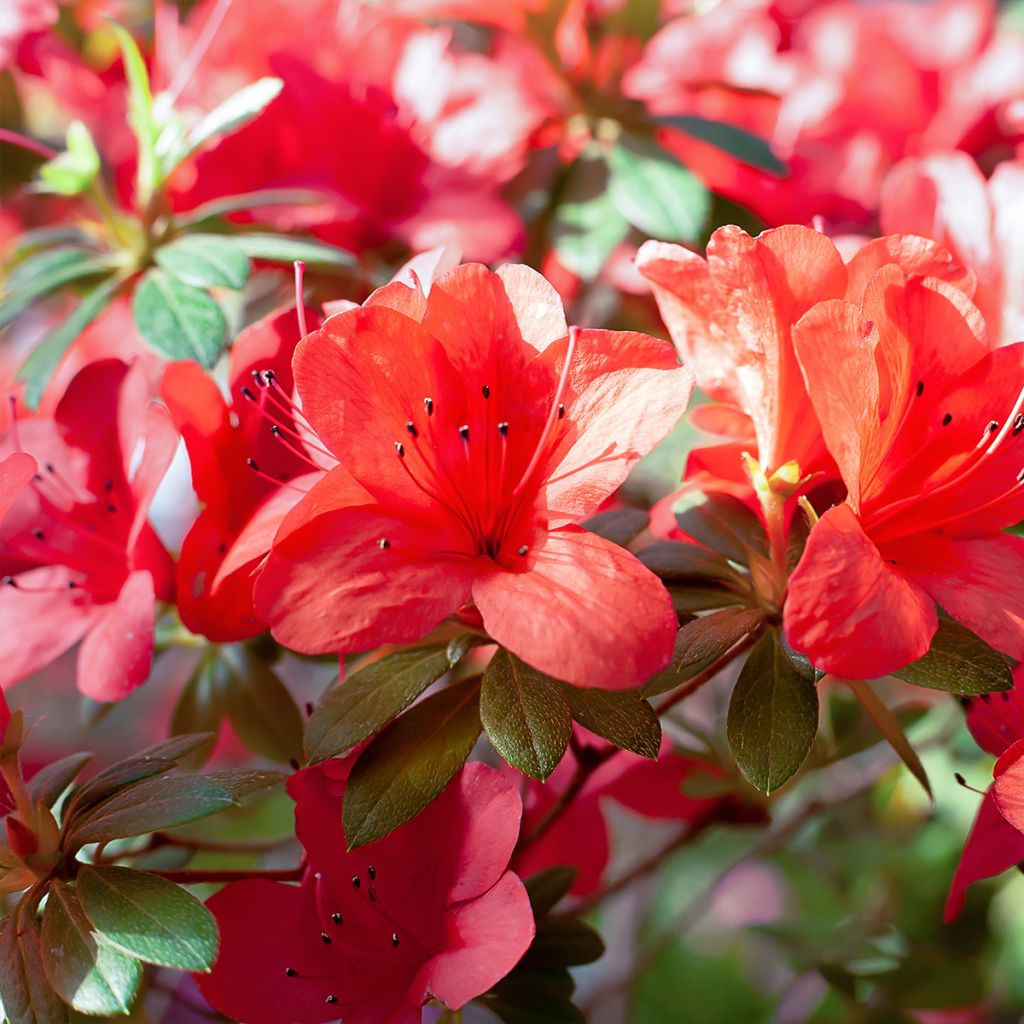

Azalea japonica Ardeur
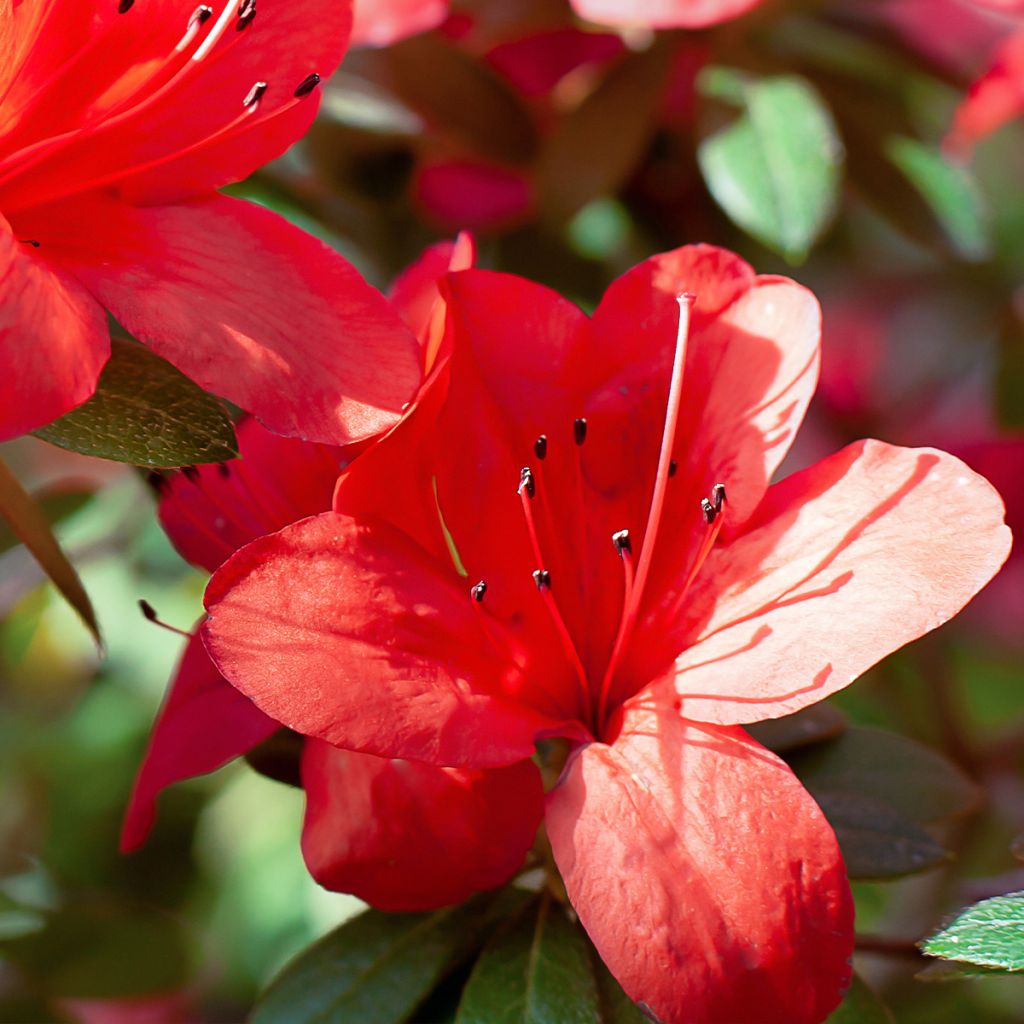

Azalea japonica Ardeur
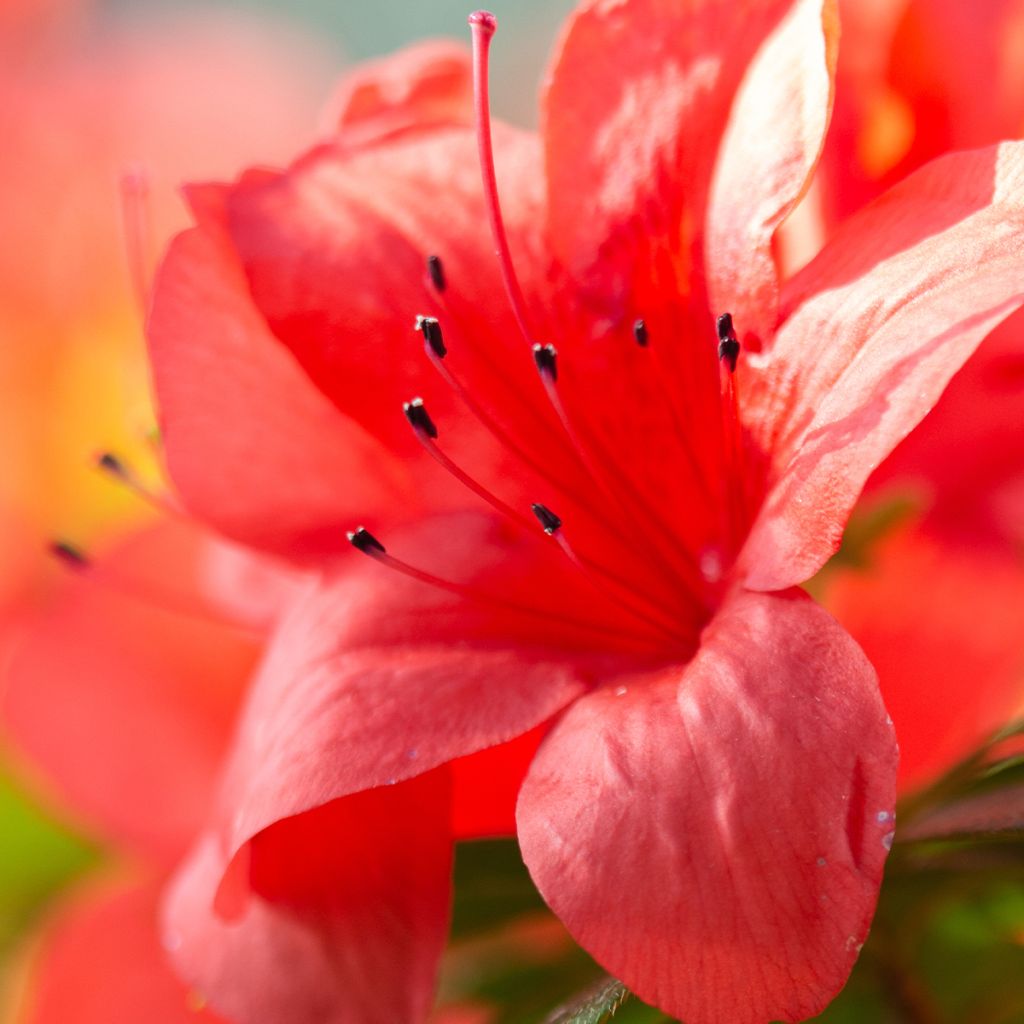

Azalea japonica Ardeur
Azalea japonica Ardeur
Rhododendron (Azalea) Ardeur
Japanese Azalea
Absolutely thrilled with my purchase, the young plant has bloomed wonderfully well, it was magnificent.
Gilles, 02/06/2023
This item cannot be shipped to the selected country
Delivery charge from €5.90
More information
Schedule delivery date,
and select date in basket
This plant carries a 24 months recovery warranty
More information
We guarantee the quality of our plants for a full growing cycle, and will replace at our expense any plant that fails to recover under normal climatic and planting conditions.
From €5.90 for pickup delivery and €6.90 for home delivery
Express home delivery from €8.90.
Does this plant fit my garden?
Set up your Plantfit profile →
Description
Rhododendron 'Ardeur' is a charming Japanese Azalea with a compact habit and small, pointed, dark green leaves. Its spring flowers are stunning as they entirely cover the shrub in clusters of bright red-orange flowers. This ericaceous plant cannot tolerate lime or drought and will perform best in a semi-shaded position, in slightly moist, acid soil. This hardy little Rhododendron is perfect as the first tier of vegetation at the edge of a flower bed, and can also be grown in tubs to enhance a terrace.
The Rhododendrons are members of the Ericaceae family, which includes many ornamental genera (Kalmia, Leucothoe, Erica, Calluna, Oxydendrum, Gaultheria, Pieris...) as well as some small fruits (Vaccinium: blueberry, Arbutus: strawberry tree, Arctostaphyllos uva-ursi: bearberry). The genus Rhododendron is species-rich (about a thousand in all), including Azaleas (in horticultural terms only as botanically speaking, they are actually Rhododendrons). It includes, therefore, evergreen and deciduous species, from miniature shrubs to trees 15 m (49 ft 2 in) in height (in their natural habitat, magnificent specimens can be also admired in various parks) and with flowers that cover almost the entire range of plant colours thanks to the numerous varieties available on the market.
The Rhododendron 'Ardeur' belongs to the horticultural group of Japanese Azaleas (Rhododendron obtusum, formerly Azalea japonica). Growing relatively slowly, it will take at least ten years to reach its mature size. It then forms a small bush of about 1 x 1 m (3 ft 4 in x 3 ft 4 in), with small, dark green, pointed leaves that remain evergreen in winter, providing a beautiful backdrop for the spring flowers. In April-May, a firework display of orange-red blooms lasts for several weeks as 'Ardeur' is covered with clusters of flowers. Medium-sized, 3 to 5 cm, with 5 petals that open beautifully into a flared cup when ripe, their abundance is quite simply breathtaking. Despite its compact size, this shrub is a real eye-catcher in the garden, with the foliage almost disappearing beneath the flowers. Like other Azaleas, this ericaceous shrub likes moist, humus-rich, and well-drained, acid soils. This small Rhododendron prefers a semi-shaded position, tolerating a moderate sun in some regions. It is very hardy, down to about -20 °C. It prefers a humid climate and soil that retains some moisture in summer, but that is well-drained in winter.
With its compact size and bushy habit, Rhododendron 'Ardeur' will be ideal for decorating a terrace, or as a border plant in an ericaceous bed. To accompany it, choose plants that flower at different times, as it will be difficult to compete with the aptly named 'Ardeur'! The essential Hamamelis or Witch-Hazels will brighten up the winter with their gracefully elegant yellow, red, or orange flowers. Plant them behind 'Ardeur', so that their superb autumnal colours contrast beautifully with the dark green of the small Azalea. Viburnum davidii with its superb, shiny, dark green foliage and pronounced veins, flowers white in June and then produces extremely decorative small blue fruits. And for summer and autumn, choose two or three Hydrangeas from the wide range available, with flat, round, or elongated panicle flowers, white, pink, blue...
Report an error about the product description
Azalea japonica Ardeur in pictures
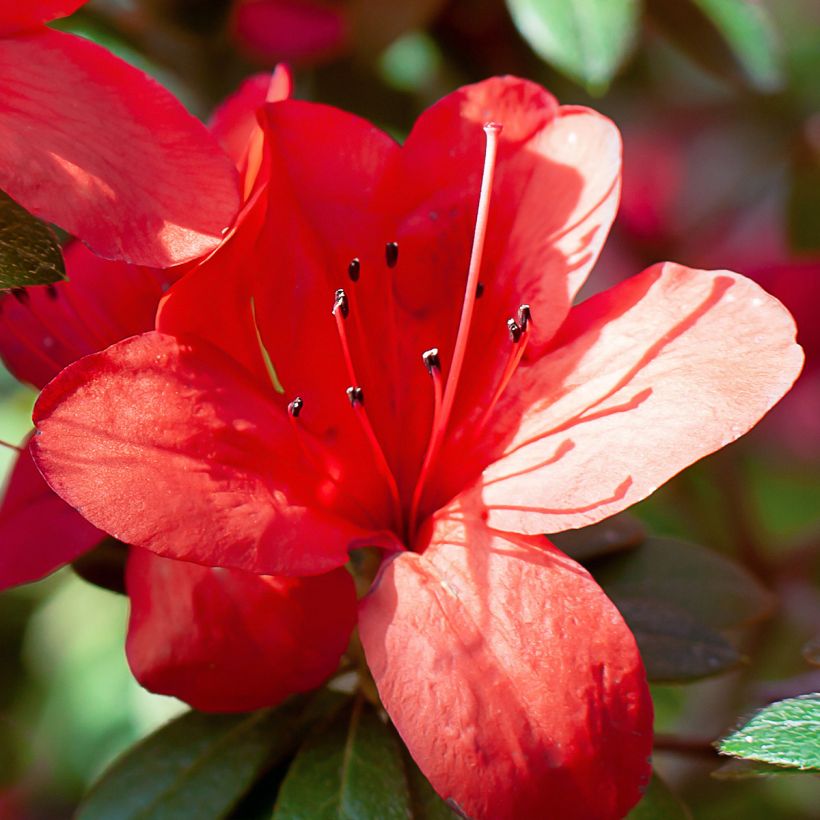

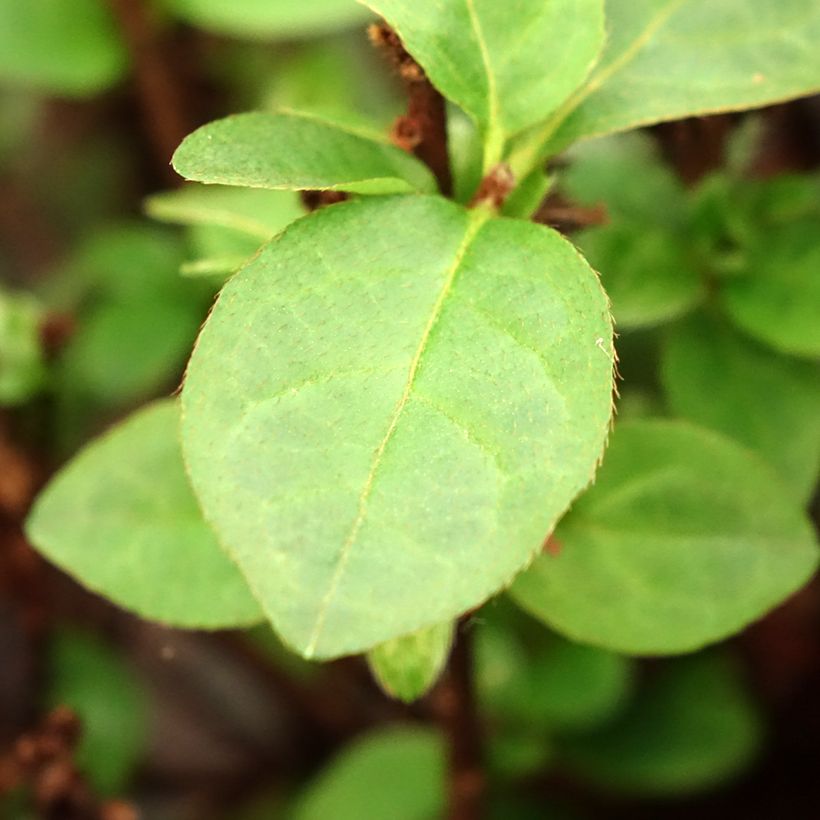

Plant habit
Flowering
Foliage
Botanical data
Rhododendron (Azalea)
Ardeur
Ericaceae
Japanese Azalea
Cultivar or hybrid
Other Japanese Azalea
Planting and care
The 'Ardeur' Japanese Azalea should be planted in a partially shaded or moderately sunny location, protected from cold, drying winds, in a light, moist, humus-rich, acid soil. Like all plants of the Ericaceous family, it does not tolerate lime soils, or heavy soils that are waterlogged in winter. Dig a hole three times larger than the pot. Soak the root ball in lime-free water and plant it level with the surface of the soil, in a mixture composed of 1/4 coir, leaf mould, horticultural grit or perlite, and loam. Water generously and keep the soil moist in summer.
Azaleas and Rhododendrons have a shallow root system. Therefore, they are sensitive to long periods of drought. That's why it is recommended to enrich the soil with humus and water copiously during dry periods. In addition, the root system is not very strong, which is why it is essential to lighten heavy soils with free-draining materials (horticultural grit, perlite, clay pellets) at planting. Then, apply a mulch of shredded pine bark around the base of the bush every spring to maintain soil moisture while preserving an acidic pH. Maintenance consists of removing faded flowers in summer and clearing out dead branches.
Azaleas and Rhododendrons suffer from very few diseases when well-established outdoors. It can be attacked by weevils that eat the edges of the leaves and rootlets, and by the famous "Rhododendron lace bug", though not often causing significant damage. Yellowing of leaves (chlorosis) in Rhododendrons indicates poor iron uptake from the soil and can lead to premature plant death. While lime is often the cause, poorly drained soil or planting the root ball to deep can also explain the phenomenon.
The vast majority of Rhododendrons are completely unsuitable for cultivation in regions that are very hot in summer.
Planting period
Intended location
Care
-
, onOrder confirmed
Reply from on Promesse de fleurs
Evergreen shrubs
Haven't found what you were looking for?
Hardiness is the lowest winter temperature a plant can endure without suffering serious damage or even dying. However, hardiness is affected by location (a sheltered area, such as a patio), protection (winter cover) and soil type (hardiness is improved by well-drained soil).

Photo Sharing Terms & Conditions
In order to encourage gardeners to interact and share their experiences, Promesse de fleurs offers various media enabling content to be uploaded onto its Site - in particular via the ‘Photo sharing’ module.
The User agrees to refrain from:
- Posting any content that is illegal, prejudicial, insulting, racist, inciteful to hatred, revisionist, contrary to public decency, that infringes on privacy or on the privacy rights of third parties, in particular the publicity rights of persons and goods, intellectual property rights, or the right to privacy.
- Submitting content on behalf of a third party;
- Impersonate the identity of a third party and/or publish any personal information about a third party;
In general, the User undertakes to refrain from any unethical behaviour.
All Content (in particular text, comments, files, images, photos, videos, creative works, etc.), which may be subject to property or intellectual property rights, image or other private rights, shall remain the property of the User, subject to the limited rights granted by the terms of the licence granted by Promesse de fleurs as stated below. Users are at liberty to publish or not to publish such Content on the Site, notably via the ‘Photo Sharing’ facility, and accept that this Content shall be made public and freely accessible, notably on the Internet.
Users further acknowledge, undertake to have ,and guarantee that they hold all necessary rights and permissions to publish such material on the Site, in particular with regard to the legislation in force pertaining to any privacy, property, intellectual property, image, or contractual rights, or rights of any other nature. By publishing such Content on the Site, Users acknowledge accepting full liability as publishers of the Content within the meaning of the law, and grant Promesse de fleurs, free of charge, an inclusive, worldwide licence for the said Content for the entire duration of its publication, including all reproduction, representation, up/downloading, displaying, performing, transmission, and storage rights.
Users also grant permission for their name to be linked to the Content and accept that this link may not always be made available.
By engaging in posting material, Users consent to their Content becoming automatically accessible on the Internet, in particular on other sites and/or blogs and/or web pages of the Promesse de fleurs site, including in particular social pages and the Promesse de fleurs catalogue.
Users may secure the removal of entrusted content free of charge by issuing a simple request via our contact form.
The flowering period indicated on our website applies to countries and regions located in USDA zone 8 (France, the United Kingdom, Ireland, the Netherlands, etc.)
It will vary according to where you live:
- In zones 9 to 10 (Italy, Spain, Greece, etc.), flowering will occur about 2 to 4 weeks earlier.
- In zones 6 to 7 (Germany, Poland, Slovenia, and lower mountainous regions), flowering will be delayed by 2 to 3 weeks.
- In zone 5 (Central Europe, Scandinavia), blooming will be delayed by 3 to 5 weeks.
In temperate climates, pruning of spring-flowering shrubs (forsythia, spireas, etc.) should be done just after flowering.
Pruning of summer-flowering shrubs (Indian Lilac, Perovskia, etc.) can be done in winter or spring.
In cold regions as well as with frost-sensitive plants, avoid pruning too early when severe frosts may still occur.
The planting period indicated on our website applies to countries and regions located in USDA zone 8 (France, United Kingdom, Ireland, Netherlands).
It will vary according to where you live:
- In Mediterranean zones (Marseille, Madrid, Milan, etc.), autumn and winter are the best planting periods.
- In continental zones (Strasbourg, Munich, Vienna, etc.), delay planting by 2 to 3 weeks in spring and bring it forward by 2 to 4 weeks in autumn.
- In mountainous regions (the Alps, Pyrenees, Carpathians, etc.), it is best to plant in late spring (May-June) or late summer (August-September).
The harvesting period indicated on our website applies to countries and regions in USDA zone 8 (France, England, Ireland, the Netherlands).
In colder areas (Scandinavia, Poland, Austria...) fruit and vegetable harvests are likely to be delayed by 3-4 weeks.
In warmer areas (Italy, Spain, Greece, etc.), harvesting will probably take place earlier, depending on weather conditions.
The sowing periods indicated on our website apply to countries and regions within USDA Zone 8 (France, UK, Ireland, Netherlands).
In colder areas (Scandinavia, Poland, Austria...), delay any outdoor sowing by 3-4 weeks, or sow under glass.
In warmer climes (Italy, Spain, Greece, etc.), bring outdoor sowing forward by a few weeks.

































